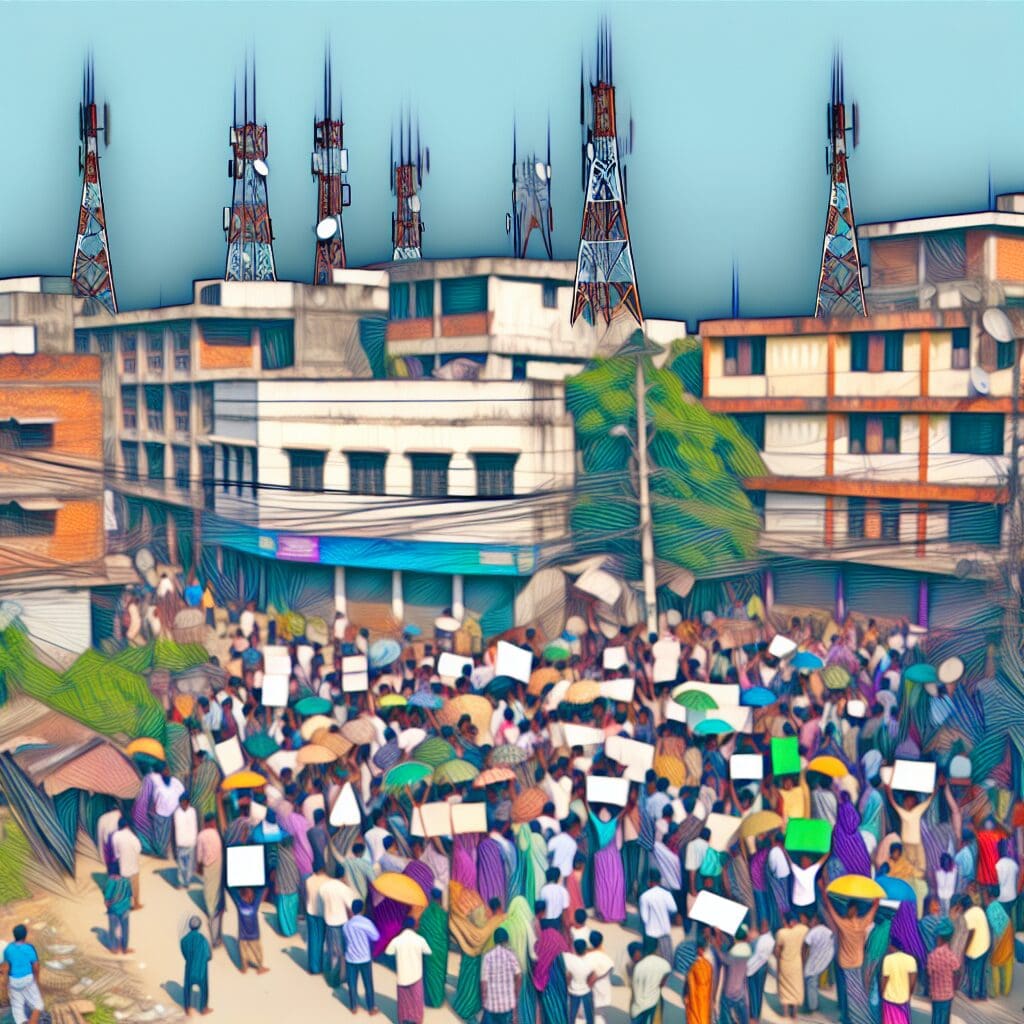Bangladesh has declared a nationwide mobile internet shutdown and enforced a strict curfew as protests over government policies have escalated. This turmoil was intensified after violent clashes between opposition demonstrators demanding Prime Minister Sheikh Hasina’s resignation and pro-government supporters, resulting in over 70 fatalities. The government’s response aims to reestablish order amidst the unrest.
Starting at 6 PM local time, the curfew will remain in place indefinitely, and essential services, including banks and government offices, will be closed for three days. The protests stem from dissatisfaction with a controversial job quota system, prompting broader calls for civil disobedience, including urging citizens to withhold taxes and utility payments.
The economic implications of curfews and internet blackouts could approach $10 billion, according to Zaved Akhtar, president of the Foreign Investors’ Chamber of Commerce. This significant impact raises questions about the stability of Bangladesh’s economy, which is heavily reliant on its garment industry.
Prime Minister Hasina has expressed a willingness to engage in dialogue with the protestors, emphasizing her intent to listen to their concerns without resorting to conflict. However, as violence persists, the challenges remain formidable for the government, raising alarms about the future of civil liberties and economic stability in Bangladesh.












